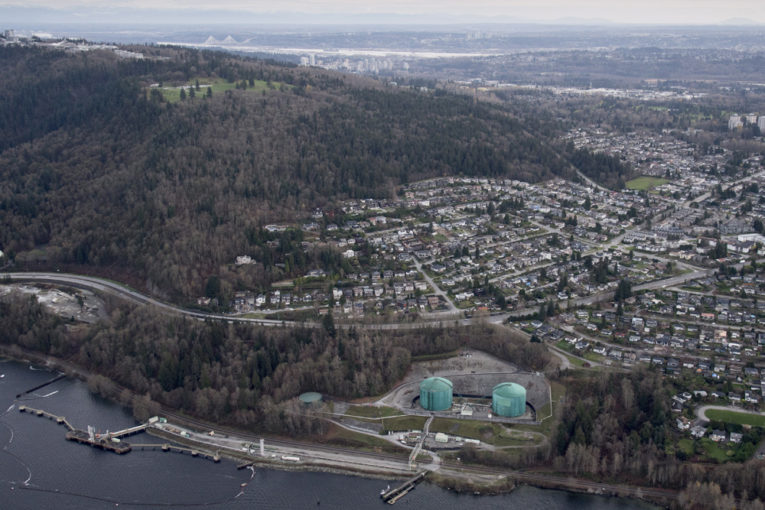
Doug Black, the independent senator from Calgary, introduced a bill Thursday in the Senate to declare the Trans Mountain pipeline expansion a work for the general advantage of Canada. It’s a blunt move, based on a section of the Constitution that hasn’t been invoked in decades, but that if passed could shut down British Columbia’s opposition to the $7.4 billion pipeline project.
It’s indicative of the increasing political isolation of the B.C. NDP government over its deployment of “all the tools in the toolbox” — legal or not — to keep the project from getting built to satisfy the environmental extremists to which it is beholden.
“Enough is enough,” Black said, reflecting what he sees as the prevailing mood in many parts of the country.
The senator believes the Senate will pass his proposed Trans Mountain Pipeline Project Act. He said it has the support of senators from across the country, including B.C. Conservative Senator Richard Neufeld, who seconded it. It would have to be approved in the House of Commons too to become law.
The bill offers an option for federal action if there is no progress in discussions with B.C. in the next few weeks, Black said in an interview.
“A foundational piece of this bill is the re-affirmation that we operate under the rule of law,” Black said. “And the subtext of course is that British Columbia is undertaking activities that contravene the rule of law. And in a civilized society, we cannot tolerate that.”
The political chill against the province escalated in the past couple of weeks, after George Heyman, B.C.’s minister of environment and climate change strategy, announced a plan to impose more regulations on bitumen transportation that would impact the already-approved Edmonton-to-Burnaby pipeline expansion.
Alberta’s NDP Premier, Rachel Notley, led the blow-back by shutting down talks to buy B.C. electricity, then by boycotting B.C. wines, then appointing a 19-member task force to come up with further retaliatory steps, if necessary.
“B.C. cannot pretend they are not part of the country,” Notley said. “They don’t get to assume rights that they don’t have. It’s an attack on economic security, and the certainty and well-being of working Albertans and Canadians throughout our energy sector.”
Even Prime Minister Justin Trudeau stuck his neck out in defence of the project when he told the National Observer this week that Trans Mountain’s approval was part of his grand bargain with Alberta in exchange for adopting a tough climate change action, and that B.C. Premier John Horgan is putting Canada’s national climate change plan in jeopardy by standing in the way. Until then, the Prime Minister’s defence of Trans Mountain was limited to a half-hearted reiteration that the project was approved and will be built.
Meanwhile, Trans Mountain made further progress in the regulatory arena Thursday. The National Energy Board issued three decisions that collectively provide it with the ability to start construction on the Burnaby Mountain tunnel entrance, subject to other applicable federal, provincial and municipal permits.
Many British Columbians themselves are increasingly uncomfortable with a decade of pipeline wars that are harming the province’s attractiveness as a place to do business.
“Not finding a resolution quickly creates further risks including expensive lawsuits, and large companies going elsewhere to invest their dollars, create jobs and attract talent,” a coalition of business organizations, including the BC Chamber of Commerce, said in a letter to Horgan this week. “Many small business owners, construction workers, people who support their families in manufacturing, and First Nations are now caught in the crossfire as a result of the uncertainty surrounding the project’s future and the retaliatory trade actions of the Alberta Government,” they said.
Black’s bill is based on a section of the Constitution Act, 1867, that provides that works between provinces are under the jurisdiction of the Government of Canada.
A senior energy lawyer by trade, Black said Canada has not used the authority in recent years because it has put more focus on cooperative federalism. But divisive pipeline battles in the past decade have frozen investment and are sending the message that Canada can’t get anything done.
“We have now come to a circumstance where finding common ground among industry, government, Indigenous people, environmental interests, has become virtually insurmountable,” Black said. “I am suggesting, with some regret, that it’s a tool that needs to be utilized.”
According to Black, the bill will remove all authority of municipal or provincial governments over the project and put government of Canada completely in charge.
The bill also has the support of Alberta’s United Conservative Party. Leader Jason Kenney said in a statement that “if the Trudeau government is serious about their verbal support for this project, they will pass this bill quickly and use their constitutional authority to ensure that this project is built.”
Since 1867, the declaratory authority has been used more than 400 times for projects in the national interest, such as railways and bridges, Kenney said.
Dwight Newman, a constitutional law professor at the University of Saskatchewan, sees the bill as mostly symbolic because the Trans Mountain pipeline is already under federal jurisdiction.
“The provinces are not supposed to interfere with the federal area of authority,” Newman said. “So, in legal terms, I think it symbolically re-emphasizes something that is already the case. But symbolism can be important too, and it might be used to signal some federal resolve.”
That resolve is finally in plain sight and confronting environmental extremism that has sewn discord and weakened the nation. It’s Horgan’s move now.
Financial Post
You can read more of the news on source
